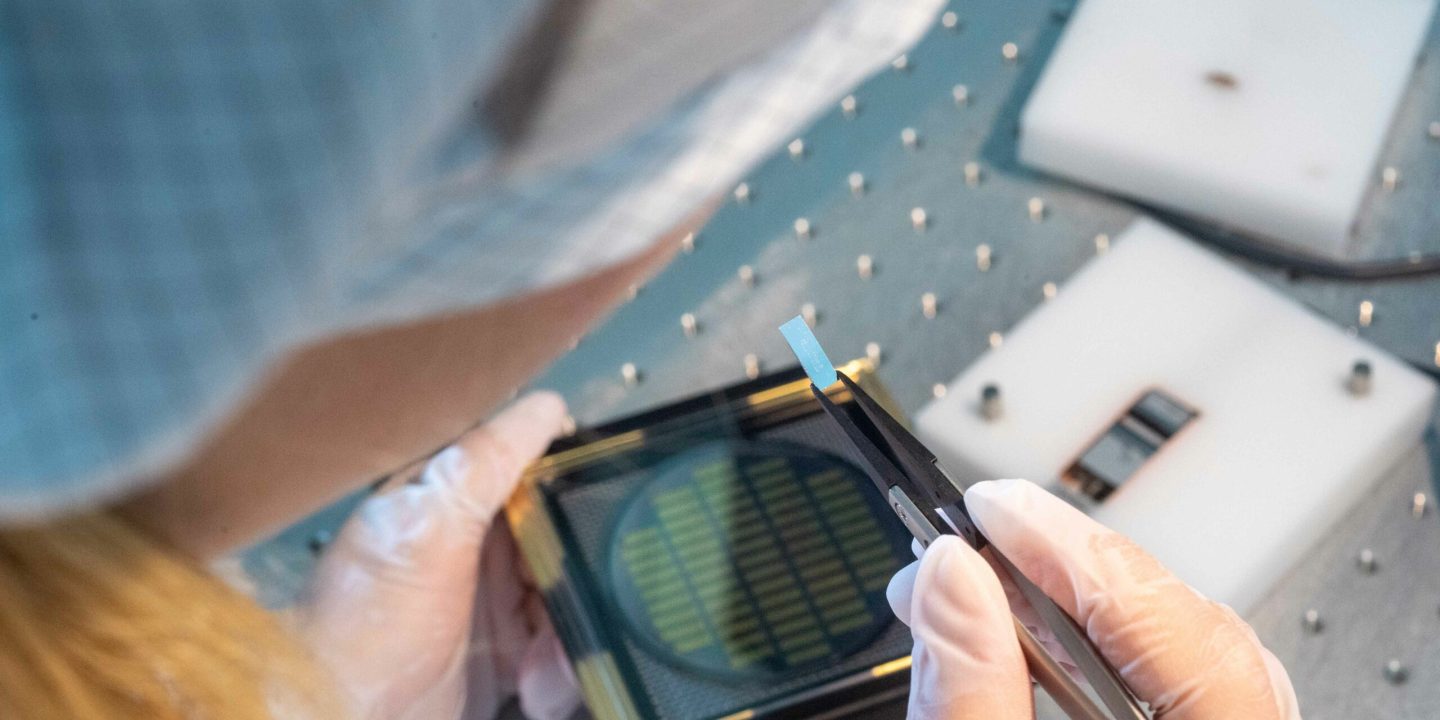Project based on cooperation between universities, applied research institutions and start-ups // Michael Förtsch, CEO of Q.ANT: “This funding is a key enabler on the path toward building quantum computers in Germany”
Stuttgart/Jena/Paderborn, March 1, 2022 – A consortium led by quantum start-up Q.ANT is set to receive some 50 million euros in research funding. Approximately 42 million euros of this will come from the German Federal Ministry of Education and Research (BMBF), while the consortium partners will contribute around 8 million euros. The funding will be used to construct a demonstration and test system for quantum computer chips and other quantum computer components. This will enable the consortium to conduct research into algorithms and technologies for photonic quantum computing and prepare for industrial scale-up. Q.ANT, a wholly owned subsidiary of TRUMPF, recently presented a method that could be used to fabricate extremely powerful quantum computer chips. By creating highly specialized optical channels on silicon chips, this photonic chip process is able to transport, control and monitor quanta with virtually zero loss, even at room temperature. In future, this will also enable the chips to be used in conventional mainframe computers.
“Building quantum computers in Germany”
“This funding is a clear indication of Germany’s strength as a hotbed of innovation. We’re on the cusp of the quantum computing era, and the global race to secure market share in this future technology has begun. The funds that have now been earmarked for this research alliance are a key enabler on the path toward building quantum computers in Germany,” says Q.ANT CEO Michael Förtsch. Known as “PhoQuant” for short, the research project will run for a total of five years. Q.ANT is in charge of the industrial side of the consortium, which also includes 14 other German companies, applied research institutions and universities.
Quantum computer chips and jobs
Currently, experts envisage that computers with quantum chips could be used in sectors such as the chemical industry, biomedicine and materials science. “If we want to achieve the goal of German-made quantum computer chips – plus all the jobs that would involve – we need to get top-class researchers and companies working together. The only way to harness Germany’s expertise as a major player in the world of science and research and transform it into successful industrial products is by fostering close cooperation between businesses, universities and applied research institutions,” says Förtsch. The project partners hope to present an initial prototype within two-and-a-half years, and they aim to produce a quantum computer chip that can perform large-scale calculations within five years at the latest.
Basic research from Germany
The Paderborn site of the Institute for Photonic Quantum Systems (PhoQS) has significant expertise in the fields of integrated optics and quantum optics, quantum information theory, algorithms and electrical engineering. PhoQS will seek to consolidate this expertise in order to implement, control and characterize large quantum systems for light-based quantum information processing within the alliance. “Over recent years and decades, we’ve carried out some of the world’s most pioneering basic science work in this area of research. For the first time, this project gives us an opportunity to put the results of this work into practice through demonstration set-ups,” says Prof. Christine Silberhorn from Paderborn University.
Putting research into practice
The various partners in the consortium bring a range of different skills to the table. The task of the universities is to develop and contribute an understanding of the fundamental properties of quantum behavior. Meanwhile, the applied research institutions will support efforts to translate this knowledge into practical methods. The start-ups in the alliance will have the job of developing and building components for quantum computer chips.
The PhoQuant project is part of the framework program “Quantum technologies – from basic research to market”, which is financed by the German Federal Ministry of Education and Research (BMBF). One of the organizations participating in the project is the Jena-based Fraunhofer Institute for Applied Optics and Precision Engineering IOF. “Researchers in Jena are working on a number of developments within the scope of this project, including integrated optical quantum light sources and low-loss integrated optical and fiber-optical interferometers as the basic building blocks of photonic quantum computers,” says Prof. Andreas Tünnermann, director of Fraunhofer IOF. “This requires expertise not only in quantum optics and photonics, but also in hybrid packaging and interconnection technology. We’ll be injecting these skills into this highly dynamic project and working with all the participating companies and institutions to reach our common goal of creating a powerful photonic quantum computer.”
The research project involves a total of 14 partners:
- Q.ANT GmbH
- Paderborn University (UPB)
- University of Münster
- Fraunhofer Institute for Applied Optics and Precision Engineering
- University of Jena
- Ulm University
- HQS Quantum Simulations GmbH
- Humboldt University of Berlin
- Fraunhofer Institute for Photonic Microsystems
- Swabian Instruments GmbH
- TEM Messtechnik GmbH
- ficonTEC Service GmbH
- FU Berlin
- Menlo Systems GmbH
